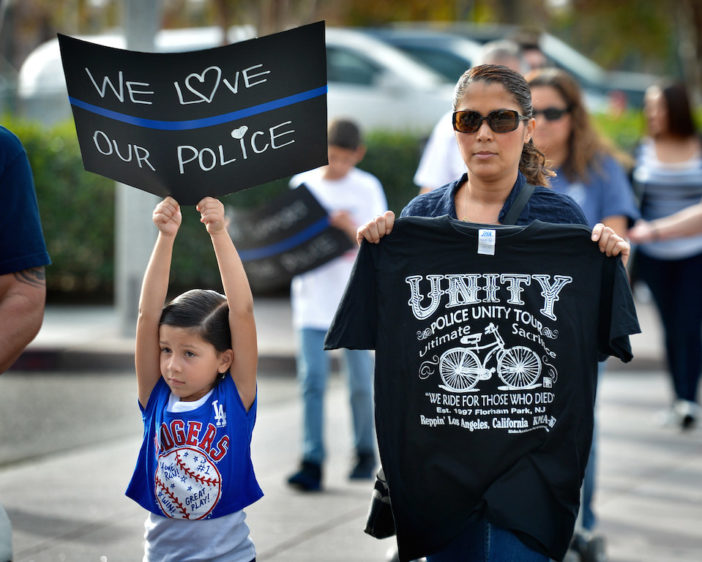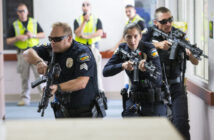The Pew Research Center last week released the results of a survey of more than 8,000 U.S. police officers in a publication aptly titled, “Behind the Badge.”
The results were not surprising to anyone in law enforcement. They are consistent with the conversations I have had with hundreds of officers across the state in the last year.
The big unanswered question is, “Does the demoralized condition of today’s police officers impact public safety?
Here are some of the results of the survey.
– 86% of police officers feel their job has gotten harder.
Police officers are frustrated with the public’s knee-jerk reaction to viral videos of use of force. Protests erupt even when there is clear-cut evidence supporting the actions taken by responding officers.
It’s frustrating when community leaders criticize findings they don’t agree with. They angrily complain about a broken system. This occurs even in cases after judges and juries have heard all the evidence.
– 93% feel less safe when they are doing their job.
A deranged individual inspired by hateful rhetoric can act out in violence at any time. And you’re a target just because you wear a uniform and badge. Your level of vigilance is now extra high. You don’t want to be the next one to die.
For police officers, it’s disheartening to hear the profession described as being too paranoid. It’s not paranoia when the threats are real.
– 76% feel reluctant to use force even when necessary.
I would challenge anyone to try and put handcuffs on someone who doesn’t want them put on.
It’s not pretty.
Then picture a crowd whipping out smart phones and recording the struggle, chirping at you and inciting each other, spewing a distorted version of the truth. Then somebody posts the video for tens of thousands of virtual bystanders to critique your every decision and move.
It’s no wonder officers can be reluctant to use force…even when necessary.
In this line of work hesitation can have deadly consequences. Some say it already has.
– 75% feel relationships between African-Americans and police officers have become more tense.
In communities where police are needed the most there is tension. The strained relationships make it harder for police officers and community members.
Across the U.S. there are cities where people are literally dying in the streets. Restoring order will take communities and police working together in making neighborhoods safe. It can’t happen without trust.
– 72% of police officers are less willing to stop and question people who seem suspicious.
Of great concern is the reluctance of police officers to actively engage in self-initiated enforcement activities. Scholars and politicians have so far given little credence to the notion of de-policing. “It’s too early to tell,” is often the response. In the meantime, our communities are less safe and criminals feel free to terrorize and victimize.
You should ask yourself, “If I was a police officer today would I think it was worth it?”
– 86% of police officers feel the public has little understanding the challenges police officers face.
Let’s face it, policing is experiential. Unless you’ve been in an alley in a crime-ridden neighborhood at 2 a.m. trying to detain four gang members in a dark carport it’s hard to relate.
The experience of policing is unique. Law enforcement needs to do a better job of educating and informing communities of what it’s like to be a cop these days.
Finally, there is a lot of workplace research showing a strong relationship between morale and productivity. If police officers are suffering from poor job satisfaction, lack of community support and even physical attacks, what are going to be the results?
An overwhelming majority of police officers have never fired a shot, showed up in a social media video or even had someone file an excessive force complaint against them.
There is a lot more information in the nearly 100-page report. But the bottom line is this:
It’s tough to be a cop these days.
Joe is a retired Anaheim Police Department captain. You can reach him at jvargas@behindthebadgeoc.com.
 Behind the Badge
Behind the Badge



